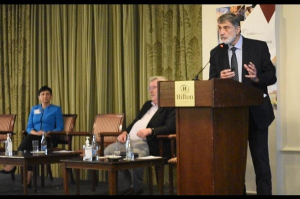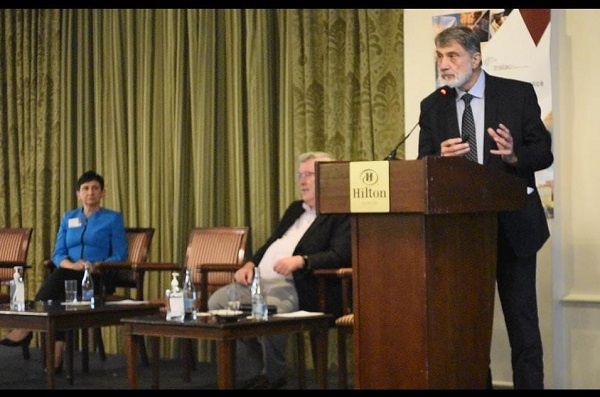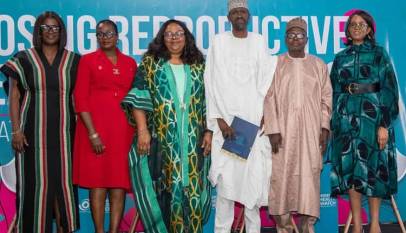tralac’s 20th anniversary conference underscores AfCFTA’s role in Africa’s economic recovery
The tralac Annual Conference 2022 which coincides with its 20th anniversary, focused on how African governments can leverage the African Continental Free Trade Area (AfCFTA) to find solutions to varied crises ravaging the continent.

Founded in 2001, the Trade Law Centre (tralac) is Africa’s leading trade capacity-building think-tank assisting African countries to improve trade governance and achieve inclusive trade policy processes that ensure trade contributes to sustainable development outcomes.
The 2022 tralac Annual Conference was themed “Africa’s trade and governance agenda in a changing global order,” and held October 13 – 14 in Nairobi, Kenya. It will be recalled that tralac’s 2021 annual conference was held virtually due to the advent of the Covid-19 pandemic.
While opening the conference, George Lipimile, chairperson of tralac’s board, said the non-profit had become Africa’s most relied upon trade think-tank, adding that African trade and integration governance in the global context remains a cornerstone of tralac’s work. Mr Lipimile said the fact that less than 20% of the goods produced in Africa are destined for the continent’s market explains why this year’s conference was devoted to international trade and governance in a new global order.
“At the 2021 tralac conference, the focus was on the lessons from Covid-19, with other topics like developments around the AfCFTA. Extensive economic and social disruption was caused that required structural transformation and new governance solutions on national, regional and multilateral levels. Those challenges are still with us and have, in some ways, permanently changed the world,” he noted.
Mr Lipimile said Africa’s Sahel region has increasingly become a displacement crisis area of the world, with millions of people having been forced to flee their homes and in dire need of humanitarian assistance, as armed conflicts, economic insecurity, and the adverse effects of climate change continue to devastate countries within the region.
“This year we will also have a dedicated session on food security, climate, and trade. Famine is, unfortunately, a recurring disaster in Africa. It has now become a crisis of much bigger proportion. The scientific evidence suggests that areas in Africa, such as the Sahel region, will increasingly face this scourge. It comes together with indiscriminate attacks against civilians and public infrastructure, including schools and health facilities,” he noted.
In his message to the conference, Secretary-General of the AfCFTA Wamkeke Mene bemoaned the severe negative impact of the Russian-Ukraine war on Africa, due to the continent’s overreliance on grain imports from Russia and Ukraine, underscoring the importance of the AfCFTA’s implementation as a viable solution to the continent’s worsening food insecurity.
“First, we have a unique opportunity to boost intra-African trade in agricultural products by moving rapidly to ensure zero-duty, quota-free trade in basic agricultural products. The African Ministers of Trade can take this decision immediately as a response to the crisis to ensure food security and place smallholder farmers in the middle of the value chain for guaranteeing food security in Africa,” Mene said in a recorded video message.
“Second, we have an opportunity to deploy the AfCFTA’s Protocol on Intellectual Property Rights to ensure Africa’s IPR regime adequately responds to future pandemics while governments are empowered to take drastic action regarding patents, trademarks and other IPRs, to save people from needlessly dying. The AfCFTA presents an opportunity for these two decisive actions to take place, thereby reconfiguring the architecture of the trade laws and trade patterns we have seen in the last 60 to 70 years,” he urged.
Mr Mene therefore urged Africa to view the changing global order not as a crisis, rather as an opportunity for the continent to assert some of the reforms it had been seeking to advance through the World Trade Organization (WTO) without success, noting that the AfCFTA provides the continent with an opportunity to capture and codify all necessary public health reforms and chart a new course on how trade agreements should be responding to crises around the world.
The AfCFTA chief said the recently launched guided trade initiative allows 7 African countries the opportunity to trade with one another under the AfCFTA’s preferential tariffs, describing the FTA as the only trade agreement in the context of the changing global order that does not only advance mercantilism and market access, rather is driven by development imperatives of inclusivity and addresses trade inequities among participating countries in the medium-to-long term.
“An example of this is the Protocol on Women and Youth in Trade that is currently being negotiated, whose underpinnings move the African continent away from simply making aspirations of inclusivity to actually codifying these aspirations into legally binding rules so as to create opportunities for all. We make no apology for creating a new trade regime that deemphasizes market access and instead emphasizes the importance of inclusivity and equal development in a trade area,” Mene averred.
Amb. Albert Muchanga, the AU Commissioner for Economic Development, Trade, Tourism Industry and Mining, in his keynote address at the 2022 tralac conference, described tralac as “a friend of the African Union Commission”, noting that although the continent was still “not out of the woods” with respect to the Covid-19 pandemic, there has been a significant change since tralac’s 2021 Annual Conference which focused on Africa’s healthcare sector and access to vaccines, among others.
“The pandemic reminded us that we need to build our own resilient health and economic systems. There’s no doubt, another pandemic will confront us in the future. When this occurs, Africa must stand on her feet and fight it timely and effectively. It is sad to note that when the COVID pandemic hit us, Africa was importing 90% of her medicines. In some cases, those that manufactured the vaccines were not willing to sell them to Africa,” Muchanga complained in his recorded keynote.
The AU chief said tralac had played a pivotal role in Africa’s economic integration, urging the trade thinktank to continue to do the same as the continent embarks on the technical process of implementing the AfCFTA as well as when the FTA eventually transforms into the envisaged African Customs Union/Common Market.
“Several regions and countries around the world would like to have FTAs with Africa. In this connection, we have commissioned a study to assess Africa’s readiness to move to a Customs Union/Common Market. The study will inform the African Policy Organs on the way forward in deepening the continent’s integration with the rest of the world, based on a Common External Tariff, without which the AfCFTA will always face the dangers of trade deflection and consequently, de-industrialization,” he told the convening.
Muchanga said the move towards deepening Africa’s economic integration was in line with the Abuja Treaty Establishing the African Economic Community, adding that Africa’s trade and governance agenda in a changing global order was forward-looking and committed to international trade, for which the AU was also commissioning a study on increasing Africa’s share of global trade, anchored on manufactured and agro-processed goods and services.
In his remarks, H.E Sebastian Groth, the Ambassador of Germany to Kenya, said the AfCFTA would help build Africa’s resilience to global shocks and uncertainties such as Covid-19 and the Russia-Ukraine war. Amb Groth said it was in recognition of the AfCFTA’s potential that Germany was supporting continental initiatives aimed at boosting intra-African trade, through a multi-layered approach, working across three Regional Economic Communities (RECs) and at national levels around the continent.
Similarly, H.E. Caroline Vicini, the Ambassador of Sweden to Kenya and Seychelles, believes the AfCFTA would boost Africa’s productive capacity and allow for the flow of goods and services across borders in line with the government of Sweden’s stance as a firm advocate of the benefits of free trade, hence their support to the negotiation processes and implementation of the AfCFTA.
The two-day 2022 tralac Annual Conference was supported by the Swedish International Development Cooperation Agency (SIDA) and the German International Development Cooperation Agency (GIZ). It was preceded by the annual conference of the over 660-member strong tralac Alumni Network, whose members hold key positions in national and regional institutions across Africa.
















